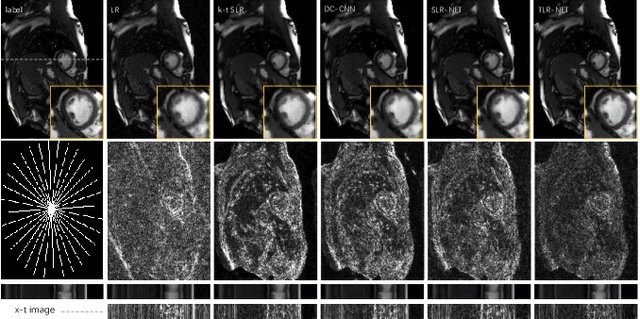Dynamic MRI using Learned Transform-based Deep Tensor Low-Rank Network (DTLR-Net)
Paper and Code
Jun 02, 2022


While low-rank matrix prior has been exploited in dynamic MR image reconstruction and has obtained satisfying performance, low-rank tensors models have recently emerged as powerful alternative representations for three-dimensional dynamic MR datasets. In this paper, we introduce a model-based deep learning network by learning the tensor low-rank prior of the cardiac dynamic MR images. Instead of representing the dynamic dataset as a low-rank tensor directly, we propose a learned transformation operator to exploit the tensor low-rank property in a transform domain. In particular, by generalizing the t-SVD tensor decomposition into a unitary transformed t-SVD, we define a transformed tensor nuclear norm (TTNN) to enforce the tensor low-rankness. The dynamic MRI reconstruction problem is thus formulated using a TTNN regularized optimization problem. An iterative algorithm based on ADMM used to minimize the cost is unrolled into a deep network, where the transform is learned using convolutional neural networks (CNNs) to promote the reconstruction quality in the feature domain. Experimental results on cardiac cine MRI reconstruction demonstrate that the proposed framework is able to provide improved recovery results compared with the state-of-the-art algorithms.
 Add to Chrome
Add to Chrome Add to Firefox
Add to Firefox Add to Edge
Add to Edge